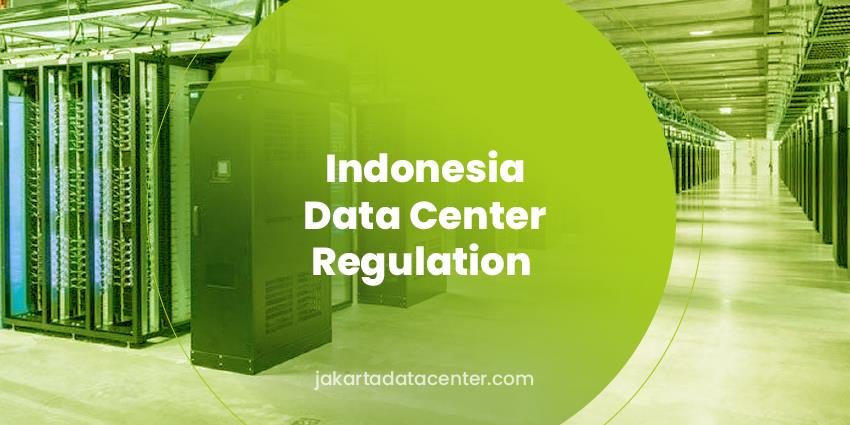The Indonesian government has eased its stance on Indonesia data center regulation, establishing a more stable business environment. The easing of Indonesia data center regulation has been long-awaited. Indonesia has the potential to become a significant player in the Asia-Pacific market, but the rules need to be made easier for local and foreign businesses to establish themselves.
The government announced changes to its data center regulations earlier this year to boost Indonesia’s appeal to foreign investors. This announcement followed a visit by U.S. Vice President Joe Biden, who urged Indonesia’s president Joko Widodo to take action on regulations that have discouraged investment in the sector.
Indonesia data center regulation eased investors to step in
The Indonesian government released a regulation requiring data centers to be operated in Indonesia by Indonesians—a move that seemed to make sense because of the lack of a data center industry in the country. The regulation required all existing data centers to begin the process of being re-licensed by the year’s end or be shut down.
The country has recently announced plans to become a significant player in international data centers and cloud computing services. The government is also working on improving its data center infrastructure—a vital step for this sector—and easing restrictions on foreign investment in local data centers and cloud computing services so that they can compete with local businesses.
Starting from the management of company permits and the construction of data centers, the supply of more environmentally friendly electrical energy (natural gas), to a 50% tax discount for five years of the company’s establishment, the investment (with a particular value) has been issued by the Indonesian government to facilitate and attract the interest of the Datacenter investors.
The Indonesian government is making strides to open this vital sector to foreign competition, a move that could promote further development of the country’s infrastructure and benefit investors. The new regulations are expected to help ease some of these fears and allow more companies to enter Indonesia’s data center market.
Data centers are gaining momentum in Indonesia
The recent energy and economic crisis have forced European data center providers to look towards Asia as a more reliable source of data centers.
The European Commission (EC) has stated that “the region is emerging as an alternative location for locating data centers due to its proximity, good transport links, and availability of significant amounts of relatively cheap energy.” Other factors include relative political stability, suitable climate conditions, a large population, and a growing economy.
Additionally, Singaporean regulators have placed a moratorium on building new data centers until January 2022. This policy was put into motion to encourage companies to expand their data center to Indonesia.
In addition, recent data center regulations have increased local demand for data center services in Indonesia. Data centers are now required to use Indonesian-based content delivery networks (CDN), which provide better connectivity to users in Indonesia compared to international CDNs like Akamai or Cloudflare.
To ensure sufficient power supply, Indonesia is already building new power plants and increasing the capacity of existing ones. It also encourages investments from private companies in the energy sector to provide additional electricity for more data centers.
This condition brings good momentum to the data center industry in Indonesia. Apart from technology giants such as Google, Microsoft, and Amazon, many investors (venture capital) have funded green data center projects in Indonesia.
Indonesia is important because of its location and size
Most internet users in Indonesia access social media, search for information, watch videos, shop online, finance, and use the internet for their daily work. In Jakarta and other big cities, there are already many digital nomads.
Marketplace revenue in Indonesia in 2022 will reach US$ 20 billion. Thanks to Indonesia data center regulation which has made it easy for this to happen. Without the convenience of this policy, perhaps digital penetration will be challenging to achieve.
The proximity of service providers to users is a factor of business competition. Likewise, for the data center, the closer to the user physically, the smoother the service will be accessed by millions of users. This is why Google quickly set up a data center in Indonesia, unlike Facebook, which is getting harder and harder to access in Indonesia.
Several investors show interest in building data centers
Indonesia offers IT-friendly policies, such as tax holidays, no restrictions on foreign ownership, low operating costs, and available resources at competitive prices. It also provides a stable environment with an electricity supply sufficient to support the growing number of data centers. These factors make it an ideal destination for international investors involved in this business sector.
Several players are already in:
- Data center investor, such as Saratoga, has already invested in a semi-green data center in Jakarta with a total investment of US$ 127 million.
- Our intelligent report shows that Goldman Sach will invest in a Green Data Center with a total investment of US$ 100 million.
- Thus, Amazon has committed to invest in a 120-megawatt solar plant, cooperating with the State Electricity Company (PT. PLN, Persero).
Data centers are trending in Indonesia, where its large population and growing economy make it a potential gold mine for providers. In fact, according to a recent report by the International Data Corporation (IDC), the country’s data center market is poised for a CAGR of 13.5% from 2020 to 2027.
Conclusion
Back in January 2015 when the government set specific requirements for data centers, including that they are located inside approved buildings and use only approved power sources. These new requirements have made it easier for investors to enter the market because they know what to expect from potential sites. They also make it easier for companies that already operate data centers in Indonesia to expand or gain additional resources to improve capacity.
The revisions to its policy are part of President Joko Widodo’s efforts to transform Indonesia into a “Digital Economy” within his first term as president. Indonesia data center regulation changes were made to support data center investment. These changes were necessary to prevent unnecessary setbacks in the growth of Indonesia’s digital economy and tech industries in general.
Data centers are gaining momentum in the Indonesian market as new regulations are being implemented to help support this growing industry. These changes will support many governments, healthcare, and telecommunications initiatives.

